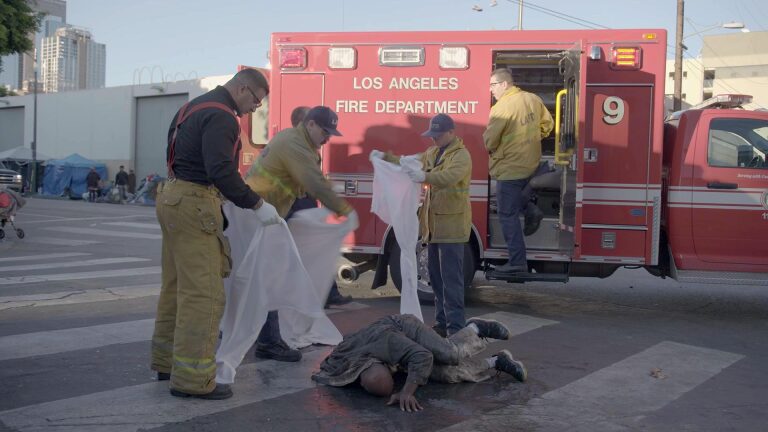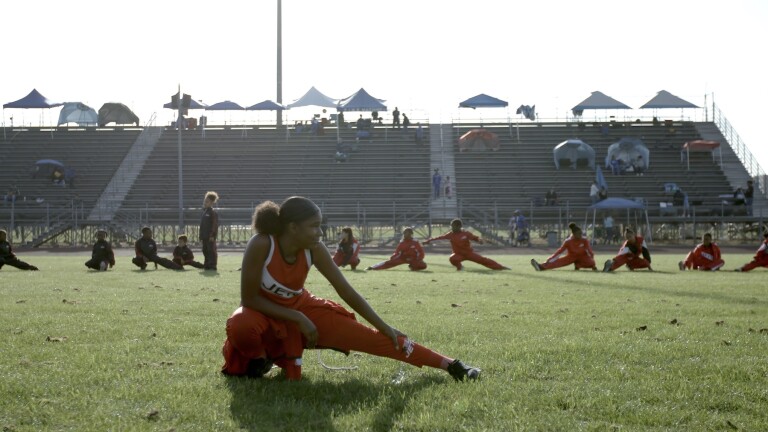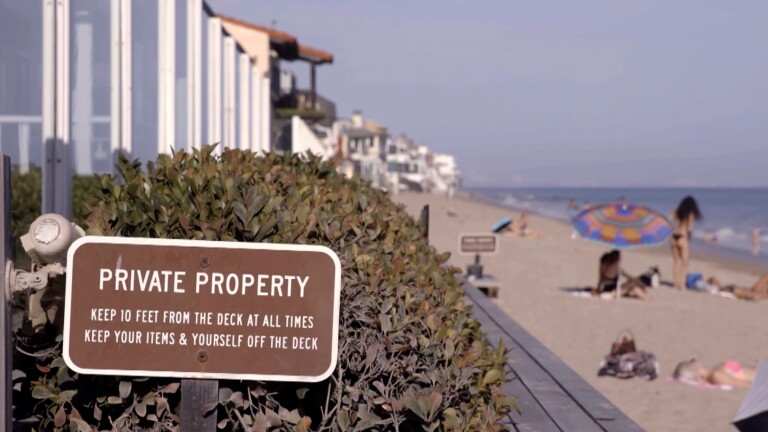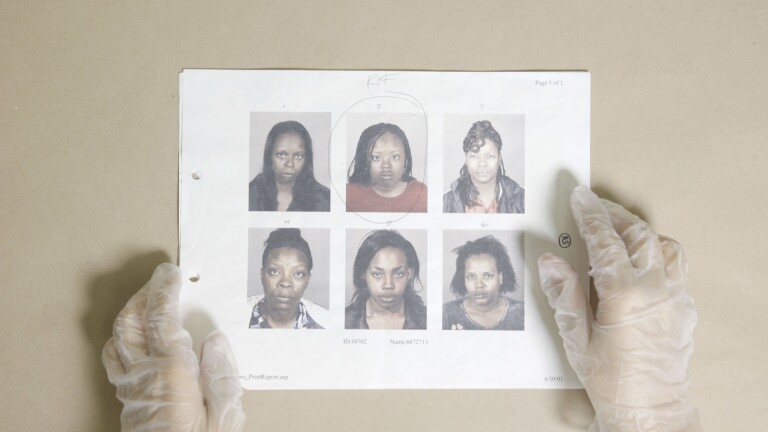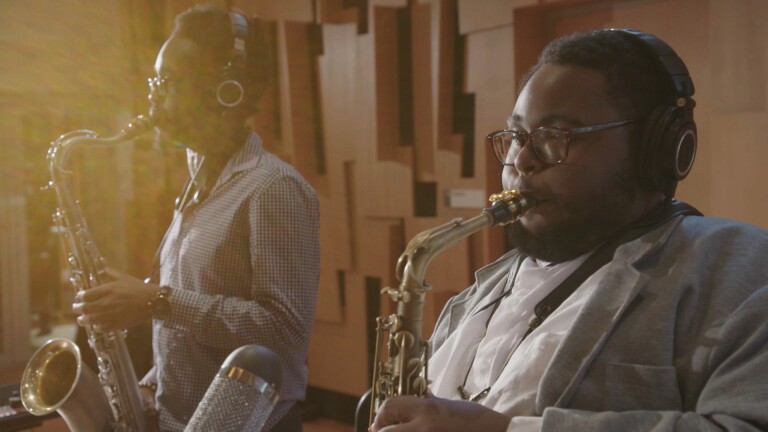
Up Next
No More Suspensions at School Famous for 'Stand and Deliver'
Think back to your high school days. How did a troublemaker get punished? Chances are, he, or she, was suspended. Suspensions have been a normal part of school life for generations. Last year alone, California schools sent kids home hundreds of thousands of times. But that doesn't make sense to one principal in East Los Angeles. He figures you can't help a student who isn't there. So he's taken suspensions off the table.
TRANSCRIPT:
Brian Rooney/Reporter: Jose Huerta is the principal of Garfield High School in East Los Angeles, and he's at the gate greeting students every morning. He's made it his mission to have every student in school, in class, and learning every day. Recently, we spent a morning with him. He was armed with his walkie talkie. He took us along on his daily rounds: up the stairs, down the halls, and into the classroom. He visits classes to see that teachers are on plan and the students are paying attention.
Rooney: What do you get out of visiting these classrooms?
Jose Huerta/School Principal: For me it's coming in here and getting the pulse of what's going on, seeing the connections with the students in the classroom and the teacher, and looking to see if the students are on task.
Rooney: He might even check to see that the marching band is in line, and in tune. But as you can imagine, discipline is also a big factor in a school of 2,900 kids, whose problems range from poverty and absent parents to drugs, alcohol and gang affiliation. The day we were there, the campus police officer had to wrestle a special education student to the ground.
Last school year there were just over 700,000 suspensions throughout the California public schools. Kids sent home as punishment about one for every nine registered students. So you might be surprised to hear that at Garfield it was one. Just one suspension last year.
Rooney [to Huerta]: You came here mid-year and there were more than a hundred suspensions, and immediately you said, "No more suspensions?"
Huerta: Right. I talked to my team. And that's off the table. I know what it's about. These kids need to be in school. For us to help a kid, we need them in school.
Rooney: The vast majority of suspended students in California are Black and Latino. This school is 99 percent Latino. Garfield has had ups and downs. It was down back when math teacher Jaime Escalante arrived and earned national fame with his ambitious effort to teach calculus in the otherwise failing school. They made a movie about him in 1988.
Huerta came here in January of 2010 just after Garfield once again escaped being sold or closed. He was part of the plan to turn it around. He started his career here as a teaching assistant, before becoming an English teacher and then Dean of Discipline. As principal, one of his first moves was to get rid of suspensions.
Huerta: This doesn't work. We're going to reward a kid by staying at home. How are we gonna teach them? He's missing two days of algebra. You miss two days of algebra, you miss a lot of formulas that are being presented. You fall way behind.
Rooney: Huerta's vice principal, when he started, was Ramiro Rubalcaba, a 1998 Garfield graduate.
Rooney [to Rubalcaba]: What was it like when you were here?
Ramiro Rubalcaba/LAUSD Administrator: It was very crowded. It was a busy school. I remember a lot of activity, but I also remember that there was a big gang problem, and there was a drug problem.
Rooney: Rubalcaba has since moved on to the central administration, but together we ran across a student, who used to be one of his discipline problems.
Marco Aguilar/Senior Student: Yes, yes. My freshman year. It was a disaster. I used to get in trouble a lot.
Rooney: What kind of stuff did you do?
Aguilar: The usual, kids were trying to hang with the big boys being in crews, stuff like that.
Rooney: The new tactic at Garfield is to spend time with a kid, get in his face and help him. Marco Aguilar was one of the first.
Rubalcaba: We knew he was from a crew. And he denied it and tried to get away with it. All of it was for him to realize on his own, "What I am doing is not good for me."
Rooney: Did it make the difference that they took the time with you?
Aguilar: Oh yeah. Anybody came by and tell you "Listen, leave them alone."
Rooney: "We are going to be in this together for four years."
Aguilar: That's what I appreciated.
Rooney: Teachers and administrators usually thought suspension was their only tool. Students expected it. But Principal Huerta turned against suspension when he was still a teacher.
Huerta: Other teachers would tell me, "You know what, it doesn't work. You won't see that kid anymore. You are gonna lose them." I go, "really?" So other teachers tell me, "Work with them. Keep them in your class." This is what I do.
Rooney: When a kid is in trouble, they bring him in instead of kicking him out.
Huerta: Instead of hanging out with your friends at lunch, we are gonna take your lunch into the Dean's office and you're gonna spend lunch with us. And we're going to look at your schedule of classes. We look at their schedule. We notice science. "Oh, you are failing science. OK, guess what, you're gonna spend lunch in the Dean's office. We're gonna have a science tutor come in there while you eat your lunch, and we are going to work with you on science."
Rooney: They're not only eliminating suspension as a means of discipline. They're trying to eliminate the behavior that might call for it. They brought parent volunteers on campus.
Rubalcaba: Being involved in lunch supervision. We use to have trouble with these hallways. Kids would come in, leave food on the floor, make out in the corner somewhere, or do drugs in the restroom behind me. But having an adult, a parent, with a shirt that says "Volunteer Garfield High School" on the front, really reduced that!
Rooney: They talk to students and make them talk to each other when there's trouble. They introduced us to two girls who had an incident they would only describe as "stupid," an argument that attracted a crowd.
Dawna Flores/Student: We didn't know what we were arguing about. We were just...
Evelyn Castillo/Student: There was no specific thing. Just put it that way.
Rooney: They were sent to a dean.
Castillo: She said, "Why should we just suspend you and ignore this? You're just going to keep going without talking it out with her. What about you see each other later on the streets? It could go worse."
Rooney: So they made you talk it out.
Castillo: Yeah. In the same room, shake hands.
Rooney: And it's nothing you would have done otherwise?
Students [together]: No.
Castillo: I don't think it would have passed in my head.
Rooney: Huerta also broke up this school of nearly 3,000 into five smaller academies.
Huerta: So we have smallness within bigness here, so kids by and large for the most part are in that building all day, with two counselors and their own assistant principal. And they get that connection, that personalization that you need.
Rooney: They have spent the one thing in education that doesn't cost more money: their time.
Huerta: A lot of work on our part. And educators will say, "Well, how did you find the time?" We found the time.
Huerta [to two students]: What's your dream school you are applying to?
Student A: UC Berkeley.
Student B: I want to go to the East coast, so I'm just applying to private schools.
Rooney: Last year, Garfield's academic performance score jumped 75 points. The graduation rate last spring was just over 79 percent, three points better than the state average, and eight points better than the entire Los Angeles Unified School District.
Huerta: There's gotta be trust in there with the teachers, the parents, and the students that everybody's on the same team, that everybody has the same focus, which is students' achievement.

